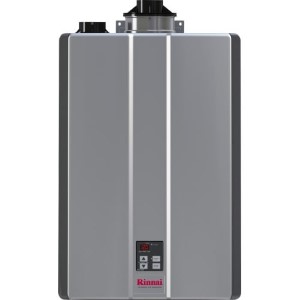How to Become a Water Heater Expert in Canada
Do you want to learn how to become a water heater expert in Canada and be able to install, service, maintain and troubleshoot any of the tank-type or tankless water heaters, check out the following tips.

You are in the right place – water heater experts in Canada are appreciated, recognized, and very well financially rewarded. As a result, according to statistics, plumbers are above average satisfied with their job.
Other good news comes from the construction industry, which shows continuous growth. It means an increase in demand for plumbers and the opportunity for skilled workers to build a career and boost earnings. Buildings and facilities once built must be maintained so there will be steady needs for plumbers to work on service and repair in the future.
Where to start?
The first question you should ask is - Is plumbing the right career for me? Consider the following and find an answer.
Are you interested in mechanics and how things work? When the problem appears, are you trying to understand it? Be aware that troubleshooting is a daily plumber’s task. Persistence and readiness for continual learning are highly welcome, too. Plumbing systems and fixtures are evolving with new technologies and materials applied.
The plumber should be in good shape. Installation and repairing often require balance, mobility, and muscle strength. Are you good with your hands?
In all trades, common sense, practicality, accuracy, dedication, communication skills... make a difference between an average journeyman and an expert with a high reputation. Plumbing is not an exception. Do you have these attributes?
The next question that requires an answer is – Do I really know what the plumber does?
Besides installing, repairing, and maintaining water heaters, fixtures, and other appliances, there are many other duties. Plumbers read blueprints, drawings, and specifications, cut the opening in walls and floors, cut, bend and thread pipes, join pipes using couplings, screws, bolts, cement or soldering, brazing, and welding equipment. They work not only on water supply systems but also on sewer pipes, waste, and drainage systems.
Residential repairing is not the most usual field of engagement. Plumbers in Canada are mainly employed in the construction industry, and many of them spent their working life in big industrial facilities and plants. Of course, you may choose your own field of interest and specialization during the apprenticeship and career.
Education, practice, certification
After completing at least four years in secondary school, you are ready to enter a four- to a five-year apprenticeship program. Be aware that mathematical knowledge is required. If you are not good at math, enter an additional course, and improve your knowledge before starting further education.
Find an employer who would be willing to train you, or apply to a union apprenticeship program. After the apprenticeship or training contract is signed, you will enter to in-school and on-the-job training.
Plumber training lasts for about 9000 hours.
Approximately 80 percent of plumber education is practical, under the direction of a qualified plumber. Classes in college or other approved training organizations take around 500 hours. There are basic, intermediate, and advanced level courses. You will learn drafting and blueprint reading, the plumbing code and regulations, general safety rules, some math, physics, chemistry, and how to use that knowledge in your work.
Usually, the program may be shortened based on additional education and previous work experience.
Upon completing an apprenticeship, you will get a Certificate of Apprenticeship.
The next important step in your career is the certificate of qualification. In Canada, trade certification is compulsory in Nova Scotia, Prince Edward Island, New Brunswick, Quebec, Ontario, Saskatchewan, and Alberta and available, but voluntary, in Newfoundland and Labrador, Manitoba, British Columbia, the Yukon, the Northwest Territories, and Nunavut.
Even where certification is voluntary, it is highly recommended because the trade certificate is a sign of your competence, which most employers expect.
An individual with over five years of construction experience and some high school, college, or industry courses in plumbing may also apply for certification.
That is to say; there are different paths to become a plumber.
The last step is to take the interprovincial Red Seal Plumbing Exam, which is given by the Canadian Council of Directors of Apprenticeship. Once you pass this exam, you will be able to work in any of Canada’s provinces or territories.


